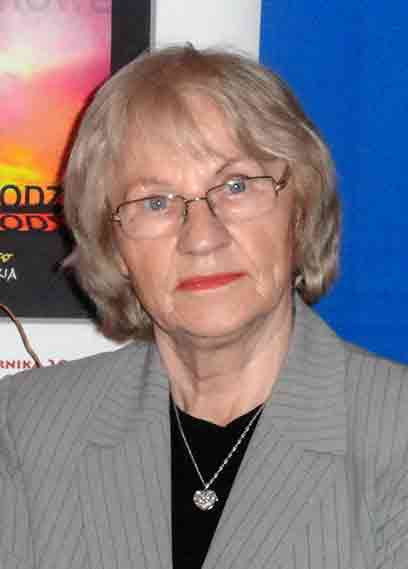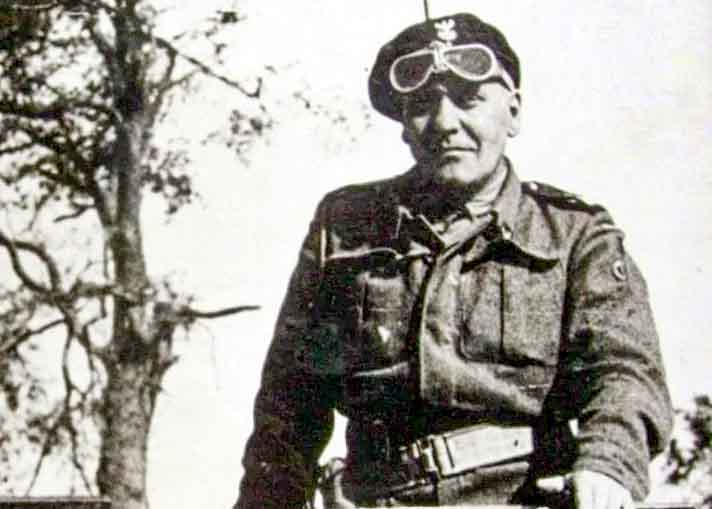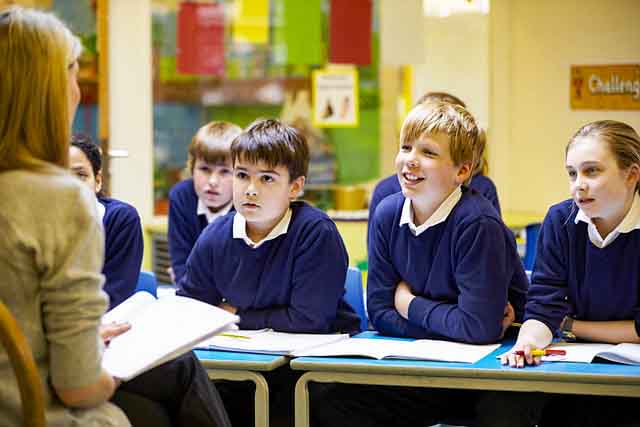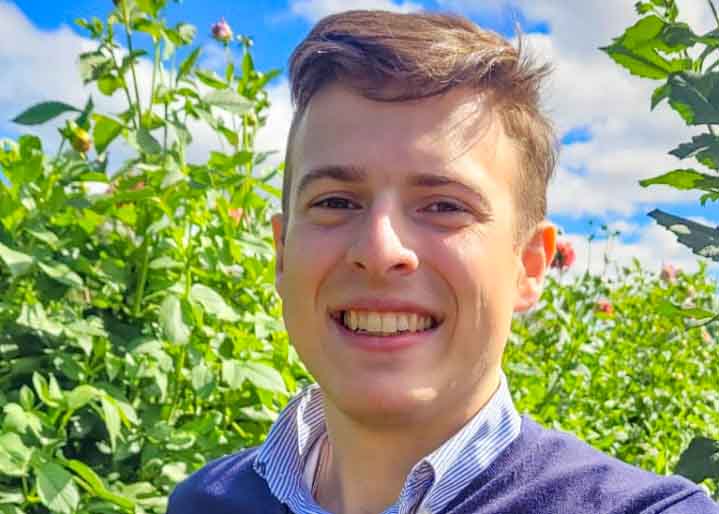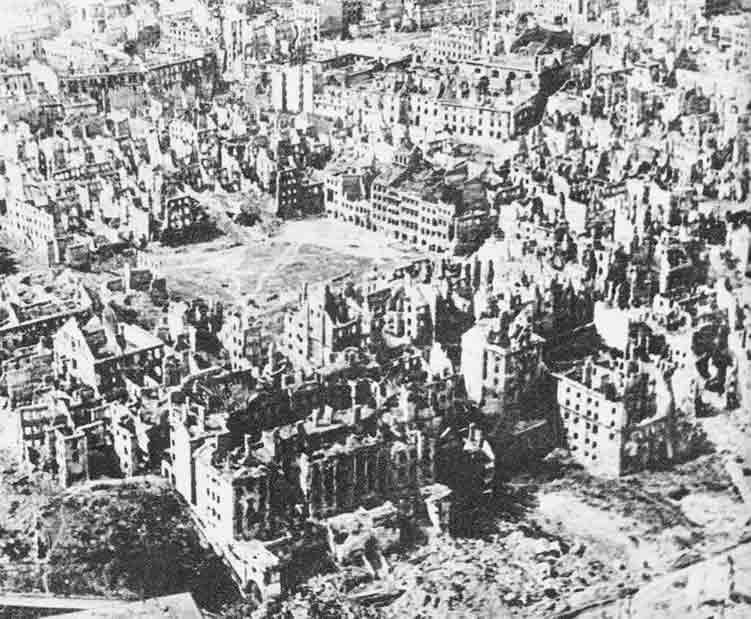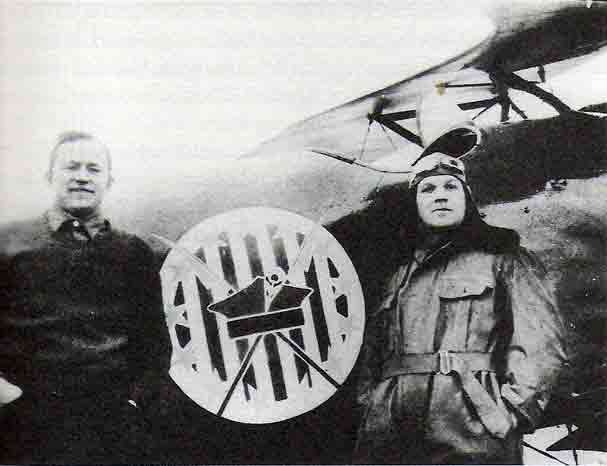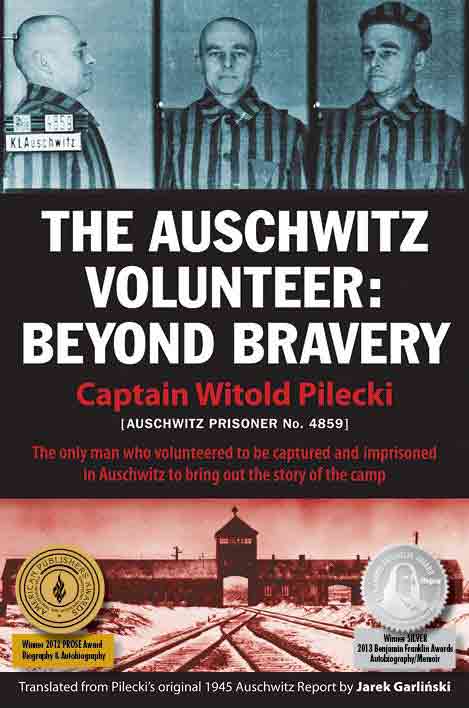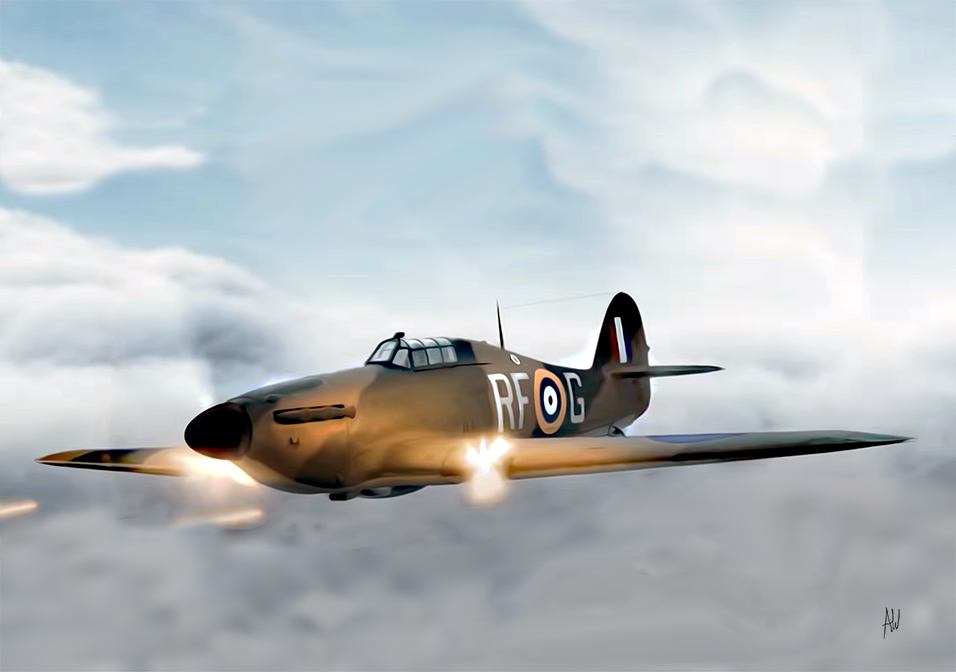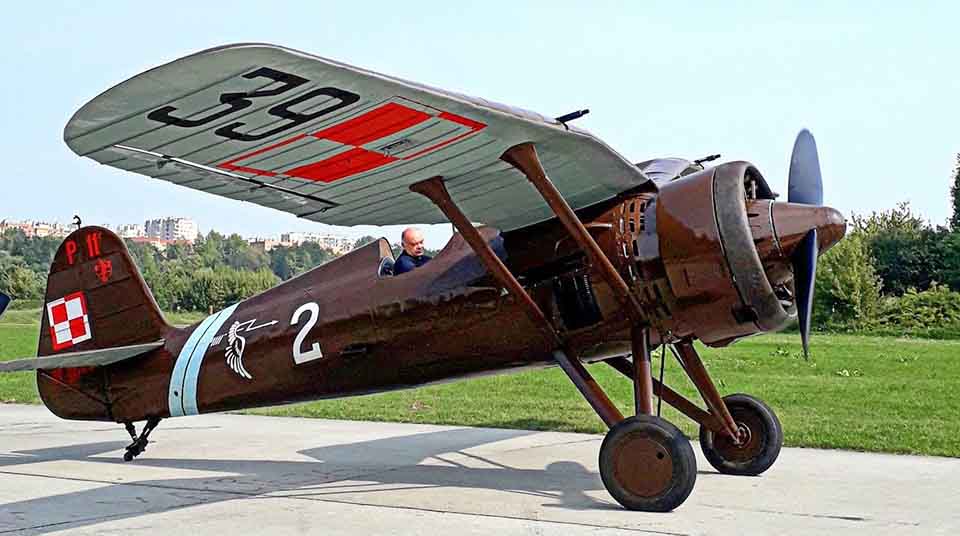Katarzyna Murawska talks to the creator of the film, Daniel Kłosowski.
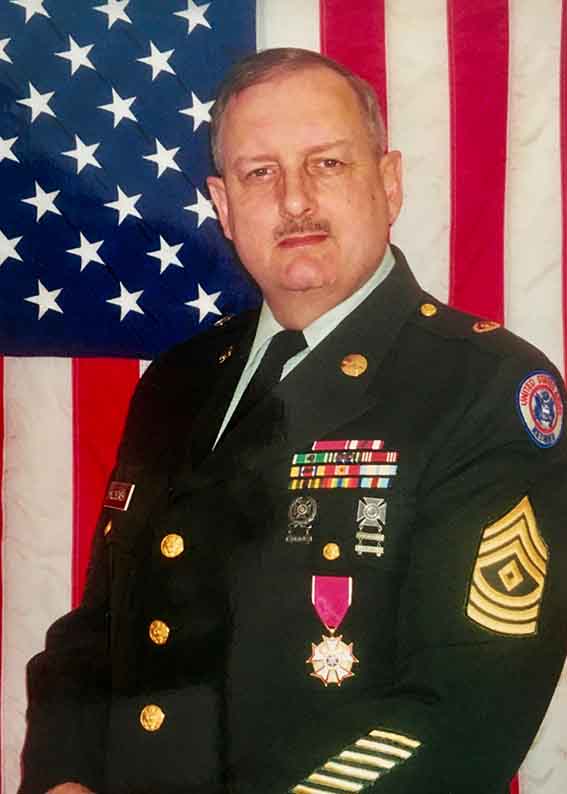
Daniel Kłosowski (Źródło: D. Kłosowski)
Katarzyna Murawska Daniel Kłosowski – an American with a Polish soul. American Army soldier, reserve soldier, commander of PLOV (The Polish Legion of American Veterans), brodcast engineer of Channel 6 TV in Milwaukee, happy husband of Janice, father, and grandfather. Did I forget to add anything?
Daniel Kłosowski Yes, everything you said is true, but I need to add something. I am an American citizen and a third-generation grandson and son of Polish immigrants. The first to come to the United States were my grandparents. My father and I were born here, on American soil, but my family and I, too, still have our hearts on the Polish side. In the late 1960s (1967-70) I served in the military at an American base in Germany. At that time, there were two German republics — the western one, FRG, created from the American, British and French occupation zones, and the eastern one, GDR, created from the Soviet occupation zone. I had the opportunity to confront my school and book knowledge about World War II, about Poland and Poles, i.e. about my ancestors.
K.M. How did you do it? What were the sources of your confrontation?
D.K. I observed, read a lot of books, met veterans who talked about their service in the 2nd Corps of General Władysław Anders, the 1st Division of General Stanisław Maczek, or the Independent Parachute Brigade of General Stanisław Sosabowski. I also became more interested in Merian Cooper, whom I knew as a film director and producer. It turned out that he had quite strong ties with Poland, because his great-great-grandfather, Colonel John Cooper, had close friendship with General Casimir Pułaski and shared ideals of love of freedom. They fought together at the Battle of Savannah. Probably Colonel John Cooper was at the general's death. The memory of this, passed down in the family from generation to generation, made Air Force Captain Merian C. Cooper, a romantic of the 20th century, decide to repay to Poland the debt of gratitude. In February 1919, he came to Poland as part of a humanitarian mission created by Herbert Hoover. In Poland, he met General Tadeusz Rozwadowski, later the chief strategist of the Battle of Warsaw. The cooperation of both officers resulted in the creation of an aviation squadron named after the hero of two nations — Polish and American Tadeusz Kościuszko. The Kościuszko Squadron made a glorious mark in the battles for Poland's eastern borders. American pilots who died defending the borders are honored with a monument at the Cemetery of the Eaglets in Lviv.
K.M. You devote a portion of your documentary "No Greater Ally" to the pilots of the Kościuszko Squadron. Please tell me how the idea to create this document came about?
D.K. In my professional work at Channel 6 of Milwaukee Television, I met many people of Polish origin who were interested in creating a documentary film showing the love of freedom and brotherhood in arms of Poles and Americans. Both Polish heroes — Kazimierz Pułaski and Tadeusz Kościuszko — embody this idea. Many people encouraged me to implement the idea and declared their help. Our attention was caught by the recently published book by Kenneth Koskodan, "No greater Ally". We decided that this title best reflects what we would like to convey in the film. We contacted the author of the book, who was born and educated in a neighboring state, Michigan, and we all started collaborating on a documentary film project about the Polish-American brotherhood in arms. Then we expanded the project to include the glorious participation of Poles in World War II.
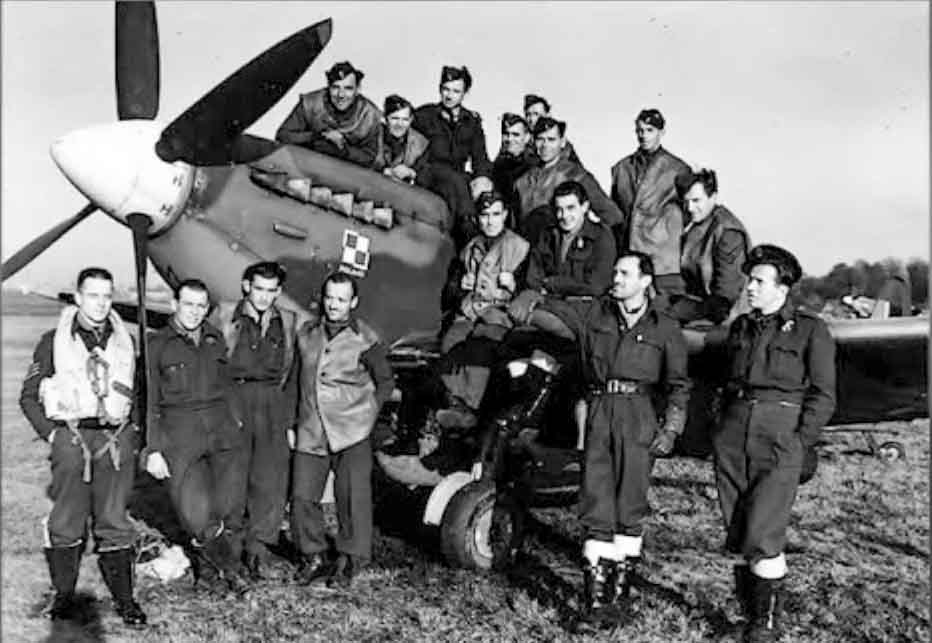
Kadr z filmu "No Greater Ally": Polscy lotnicy w Anglii, na tle samolotu RAF Supermarine Spitfire z polską szachownicą (Źródło: D. Kłosowski/freedomforhonor.com)
K.M. How did the work on the documentary progress? Were there insurmountable difficulties?
D.K. It wasn't easy, but nothing is impossible. The biggest difficulty was raising funds for production. Even though we all worked without remuneration, each entry to the archive must be paid for, each permission to use materials must be legally registered and paid. Materials, tools, and the use of a studio to produce enough DVDs must be paid for. I admit that if it weren't for my wife's moral support, I would probably have doubted the sense of implementing this project. We also decided together that the film would be a non-profit production. This all took several years. This year (2023) we technically finished working on the project.
K.M. I watched your video several times. It is a very professionally made production. I believe that it should be in every school, it should be a teaching aid for high school students, and it should also be known in military units preparing for military missions in Europe, especially those stationed in Poland.
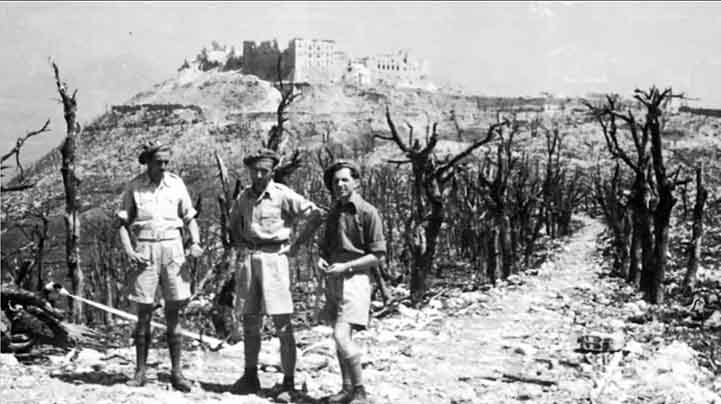
Still from the movie "No Greater Ally": Polish soldiers against the background of the Monte Cassino hill they captured (Source: D. Kłosowski/freedomforhonor.com)
D.K. I would like this to happen. It would be a dream come true for the film to be distributed both in the United States and Poland, it would be providing a true, documented image of Polish heroes, the Polish army, and finally giving Poles their rightful place in the history of World War II. For this to happen, the issue of copyright must be legally regulated, and we no longer have the resources for this.
K.M. Let us ask for help from the readers of this material, all those who care about the true image of Poland in the world. Maybe a joint effort will bring the expected results?
D.K. I would like to ask for it, but first I would like to thank everyone, who made this production possible, including: Michael Berezowski, John Drilling, Jerry Halkowski, Eugene Kałużny, Janice Kłosowski, Lisa Kłosowski, Mike Miller, Podkayne Miller, Katarzyna Murawki, Marcin Murawski, Bruse Nason, Donald Pieńkoś, Randall Jacques, Paul Ruffino, Garett Schmidt, Julie Wiech, and many others. To all of you, I bow deeply in gratitude.
I would like to thank the sponsors: Polish Legion of American Veterans USA, Polish American Congress - Wisconsin Division, Friends of Freedom For Honor.
K.M. Thank you very much for the interview and I hope that all difficulties with the distribution of the film will be successfully resolved.



